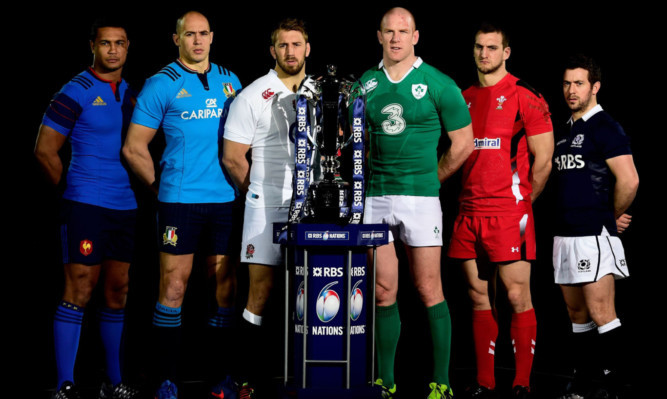Couple of pre-Six Nations thoughts as the championship looms large
FREE-TO-AIR
The Six Nations isn’t going anywhere else but the BBC and RTE until 2018. But the committee, administering to rugby’s biggest annual event in popularity and earning strength, are perfectly right to court Sky and BT Sport.
The Six Nations prints money for the Northern Hemisphere game. Billions in fact. Enough to ignore the pay-per-view lucre? Some Unions (hello, SRU, WRU!) would say they can never have enough.
In addition, the situation is identical to what is happening with the R&A and the Open Championship in golf, and as happened with cricket.
Sport is incredibly expensive and intensive of manpower to cover properly. Although the BBC does a great job with the Six Nations (better than they do with the Open, in my opinion), it isn’t that great for them as a ratings winner. Nor is the Open, nor were the test matches.
Wimbledon (although it sticks in my craw as it’s my sporting blind spot) does better. Antiques shows, Strictly Come Dancing, and quiz shows that are (literally) Pointless, are very cheap to make and more people watch them. Although us devotees are loath to admit it (hello, soccer fans!) the majority of people in this country don’t actually watch or follow sport.
The BBC is gradually withdrawing from sport (other than easy-to-schedule highlights packages) because it’s not cost-effective for them. Sky and BT Sport have the money, the will, the enthusiasm and the manpower to cover it, and the knowledge that the substantial minority who do like sport will pay subscription packages to get their fill.
In addition, the BBC are quietly happy to have it assumed that the R&A and the Six Nations are pulling away from them when in fact it’s mostly the other way around.
I don’t agree with the idea that sports get marginalised as a result of not being on the BBC. It simply hasn’t happened in cricket, where there’s more money in grassroots than there’s ever been, and crowds are bigger at Tests and T20s. No reason to think rugby will be any different.
MOVING ON
There’s still a groundswell out there that thinks Kelly Brown and John Barclay will be restored to the Scotland squad. When David Denton went down injured for “the start of the championship” (I’d say a calf tear would probably mean all of it) many thought they’d be quickly recalled.
Sunday would be deadline day for that, given that the exile players have gone back to their clubs, and Vern Cotter will be sweating that Johnnie Beattie doesn’t get crocked playing for Castres against Toulouse. But I’m not expecting KB or JB to provide a full reprieve of the Killer Bs.
Simply, neither fits what Cotter wants to do with his back row. He has one destructive, defensive-minded player in his preferred trio he rates extremely highly, more so than either of his two predecessors in the job: Rob Harley.
Add Harley’s lineout ability something neither Barclay and Brown provides and the fact that he can link and carry ball on occasion, and it’s no surprise that Cotter expects the Glasgow blindside to play against France, even after three weeks out with injury. “If there’s one player I would expect to play straight off the bat, it’s Rob Harley,” Cotter said last week.
Cotter wants ball-carriers across his pack if he can except maybe at tight-head and the three sevens he’s picked all do that as well as being good at the regular duties for the position. Adam Ashe is the prototype for what Cotter wants in the back row; big, fast, a ball carrier, industrious and effective defensively. Brown and Barclay are mostly just the latter.
Kelly was the perfect captain for Scotland, a true role model. The Killer Bs were great for Glasgow.
But Scotland won just four games with Kelly as captain. The Bs started together just eight times for Scotland, and Scotland won three of those games, and only once in the Six Nations, in the famous last game at Croke Park.
That was 2010, folks; the game’s moved on a wee bit from then.
